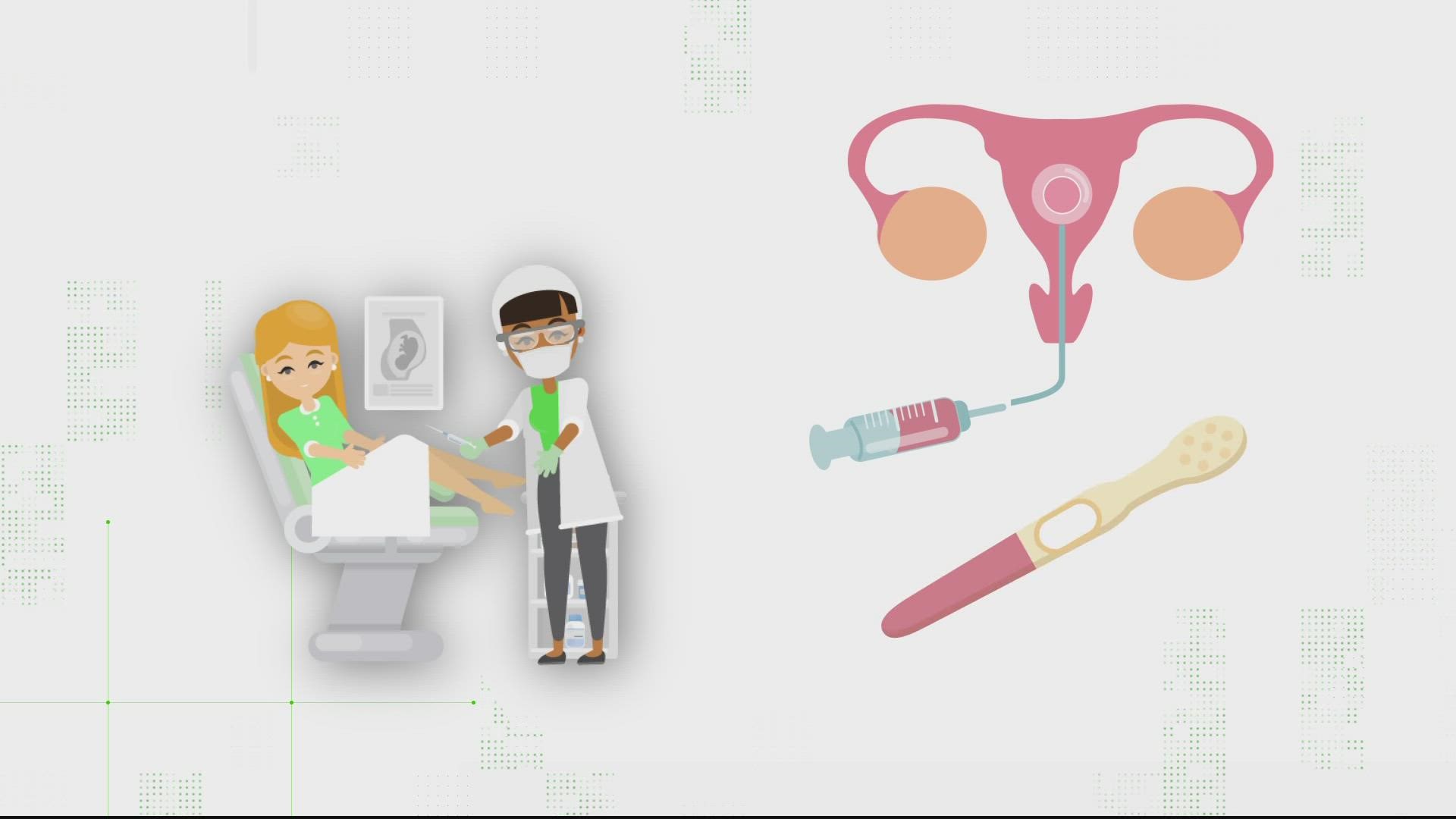WASHINGTON — EDITOR’S NOTE: The U.S. Supreme Court has now effectively overturned Roe v. Wade in a June 24 opinion. This story was originally published June 9, 2022. The information in this story is based on the draft opinion leaked to Politico in May.
While the Supreme Court precedent set in Roe v. Wade directly deals with abortion, some people online claim overturning the landmark decision can have ripple effects that include limiting or banning in vitro fertilization.
So what exactly does that look like?
THE QUESTION:
Could overturning Roe v. Wade impact in vitro fertilization (IVF)?
OUR SOURCES:
- Molly O’Brien- Fertility law attorney and partner at International Fertility Law Group
- Naomi Cahn- Professor at University of Virginia School of Law
- Susan Crockin, Lawyer at Crockin Law and Policy Group and Senior Scholar at the O'Neill Institute at Georgetown University Law Center
- American Society for Reproductive Medicine- statement 5/2/2022
WHAT WE FOUND:
All over the internet, people are talking about the ramifications of overturning Roe v. Wade, and in vitro fertilization, or IVF, is something fertility doctors claim hangs in the balance.
During IVF treatment, a person looking to get pregnant is given medication to help stimulate the ovaries to produce several eggs. It could be a few, or more than ten. With the help of an embryologist, these eggs are retrieved from the ovaries and combined with sperm to create embryos. Typically one embryo is transferred back to the uterus, in hopes that it develops into a baby.
As for the other embryos?
“They can be frozen, they can be donated, or there's also the choice to destroy them,” said Naomi Cahn, an attorney and expert in reproductive technology at The University of Virginia.
If Roe is overturned, states can enact laws that declare life begins at fertilization; some already have. That would mean all embryos are officially considered children with rights.
If embryos are defined as children, our experts say that would redefine how the industry works and limit what prospective parents, physicians and embryologists can do with frozen embryos, when testing embryos and while taking care of embryos.
What happens to those frozen or unused embryos?
“Would that person be required to donate those embryos to somebody else?" asked Cahn. "Would the person be required to use them?”
Cahn says it could lead health practitioners to change their course of treatment, like producing or fertilizing fewer eggs.
“So instead of producing, say, 10 eggs in the hopes that three or four of them will be most viable, there might need to be a change in regimen to anticipate that only a more limited number of eggs would be produced," she said.
Molly O’Brien, a partner at International Fertility Law Group, recommends that anyone with frozen embryos, move them to a state with strong abortion laws, like California or Connecticut.
What happens to embryos with genetic abnormalities?
Testing embryos for genetic diseases is a routine practice conducted in IVF laboratories.
“Some of these are not compatible with life. Some of these would lead to horrific pain and agony for children if they were born, and they're intentionally being selected out right now,” said Susan Crockin with Crockin Law and Policy Group. “But what happens if every embryo is a person? What right does anyone have to decide that some are better than others.”
Right now, parents can choose to dispose of embryos that have genetic abnormalities.
"Losing that opportunity and that choice is terrifying to me," Crockin said.
"I think questions of what to do with that fertilized egg would become extremely difficult for those embryologists," Cahn said.
What happens to the embryologist if something accidentally happens to an embryo?
If states determine that life begins at conception, our experts say it could open embryologists up to liability.
“Doing IVF, testing an embryo, or needing to terminate a pregnancy through an IVF could be considered murder," O’Brien said. I know that that's very extreme, but that's one of the fears that we're all having."
Crockin added that she worries what laws would change regarding tank failures in the IVF process.
“There have been a small number of tank failures in this country, and couples have brought wrongful death claims, saying those were lives in being and you killed them," Crockin said. "And the courts have routinely dismissed those cases saying, embryos are not babies, and you cannot bring a wrongful death claim against them. They're not viable fetuses. But if that changes, then the liability becomes criminal.”
Our experts say this risk can have lasting impacts on IVF as we know it, and the specialists who are trying to create life for people who want children.
“I think my biggest fear is removing from these men and women who so desperately want to create families the right to decide what to do with their future families or not,” said Crockin.
It’s important to note, in the leaked decision, Justice Alito says he’s specifically only addressing the right to an abortion.
"Theoretically, nothing should be affected with IVF if the opinion that's been leaked becomes effective," O'Brien said.
But without Roe, experts said it’s possible states adopt their own more restrictive laws.
“It's a scary domino effect that could happen,” added O’Brien. “But it's hard to say. And I think until we read the actual opinion, it's hard to know exactly how to react at this point."
So we can verify that while overturning Roe v. Wade doesn’t directly address IVF, if the decision is overturned, it’s possible that state laws could make the assisted fertility process more difficult.

